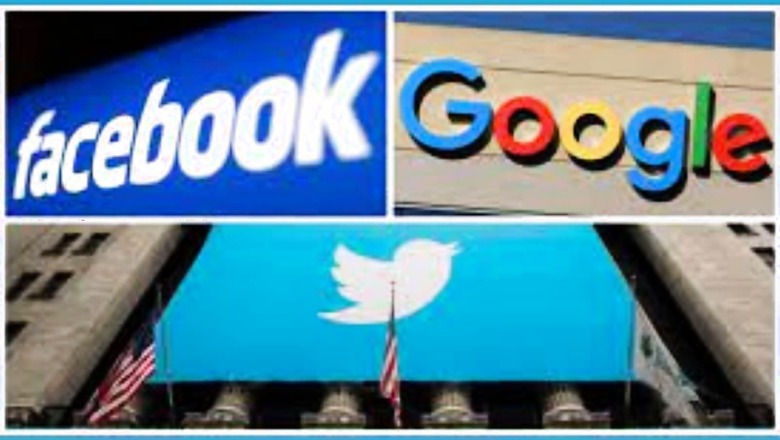
views
aceAustralia’s “News Media and Digital Platforms Mandatory Bargaining Code” has made it compulsory for the Big Tech companies to pay news publishers for showing links on their platforms. The implementation of the system has been scrutinised globally and India is probably thinking about making a similar move.
Recently, the minister of state for IT and electronics Rajeev Chandrasekhar told the Times of India, that the government is thinking about passing a law requiring tech companies such as Google, Meta, Twitter, Apple, Microsoft and others to give Indian newspapers and digital news publishers a cut of their ad revenue in exchange for using their original material.
He said: “The market power on digital advertising that is currently being exercised by the Big Tech majors, which places Indian media companies at a position of disadvantage, is an issue that is seriously being examined in the context of new legalisations and rules.”
However, it is noteworthy that apart from Australia, several European countries have also enacted similar legislation requiring such tech corporations to fairly compensate content producers for using their content and promoting it in search results.
Meanwhile, in the case of India, the Digital News Publishers Association (DNPA) and the Indian Newspaper Society (INS) filed a complaint with the Competition Commission of India (CCI), first bringing this issue under the spotlight, accusing Google of abusing its dominant position in news aggregation to impose unfair conditions on news publishers.
MoS Chandrasekhar stated that the news publishers have no bargaining power, which must be addressed legislatively as it is an “important issue”. Additionally, he believes that the rule can be implemented through regulatory interventions as part of existing IT law amendments.
Rein in Big Tech
Tech businesses have expanded, grown wealthier, and become more ingrained in many facets of modern life as news organisations struggle to adjust to declining resources in the digital age. Given the unequal playing field, many people wonder whether Big Tech should pay for the journalism they consume.
News organisations have been complaining for years about how internet companies use content in search results or other features without paying them, as they have been losing ad revenue to online aggregators like Google and Facebook.
It should be understood that tech platforms may assist news publishers in increasing the visibility of their content, but more visits do not always equate to an increase in revenue. So, it became a global issue to find out and implement effective rules that can solve the disparities of this system.
Australia’s News Media Bargaining Code and the European Union’s Digital Copyright Directive have opened the door for other nations to follow suit to make Big Tech pay for journalism.
As a result, reports from Australia revealed that the local media has prospered since Big Tech was made to pay for content. For example, due to new regulations that have benefited the local business, Google and Facebook paid Australian media companies roughly $200 million in the last year.
After a conflict between Google and Australia’s consumer regulator, it became the first country in the world to enact such rules, requiring technology platforms to negotiate compensation with the local media business and since then, media companies and Big Tech have agreed to about 30 partnerships.
Even according to reports, Meta also agreed to pay Australia’s News Corp after Australia passed the law.
In order to restore the balance between media corporations and technological titans, the UK is also thinking of drafting laws along similar lines, forcing tech companies like Meta and Google to compensate media providers for displaying their news in content feeds or search results.
In Canada, the government has also decided to mandate that when tech giants benefit from media material, they split the proceeds with Canadian firms. In April, Canadian Heritage Minister Pablo Rodriguez introduced the Online Journalism Act or Bill C-18.
If the bill is passed, major tech companies can anticipate that a portion of the revenue they make from the news will go to the organisations that produce the content. The Canadian Radio-television and Telecommunications Commission, the designated regulator, will determine which outlets receive a cut of the revenue.
Meanwhile, Microsoft also teamed up with European Publishers Council and News Media Europe, as well as two groups representing European newspaper and magazine publishers to push for a system to make big tech platforms pay for news.
However, according to reports from the last year, in France under similar law, Google has signed a 5-year-deal for paying Agence France-Presse for its news material. The AFP agreement comes after France passed a copyright law that establishes “neighbouring rights,” which calls on large tech companies to initiate negotiations with news publishers who desire a licence fee.
Additionally, in 2021, Google reached an agreement with over 120 French news publishers to pay them $76 million over three years. Similarly, Meta’s Facebook also signed a deal with a French group that represents 300 French publishers to pay for news content circulating on its users’ feeds.
Furthermore, under the European Copyright Directive, which allows publishers to ask for payment whenever online platforms use their content, Google has signed agreements with more than 300 news outlets operating in the EU to publish their articles on the search engine.
In a blog post, Google said in May that publishers from Hungary, Austria, the Netherlands, and Ireland, have signed the agreement. But the amount Google will pay for the partnerships was not stated in the post.
But now according to reports, in response to growing worries that tech behemoths were eroding the ad revenue of news organisations, Facebook decided to pay a number of publishers to display their material in its news section in 2019 but the social media platform and its parent company Meta are now reconsidering paying for such contents.
According to a June report by the Wall Street Journal, some news organisations may face potentially tens of millions of dollars in revenue shortfall as the social media giant has not indicated that it intends to extend the three-year contracts (signed in 2019) that are due to expire this year.
Read all the Latest News, Breaking News, watch Top Videos and Live TV here.




















Comments
0 comment